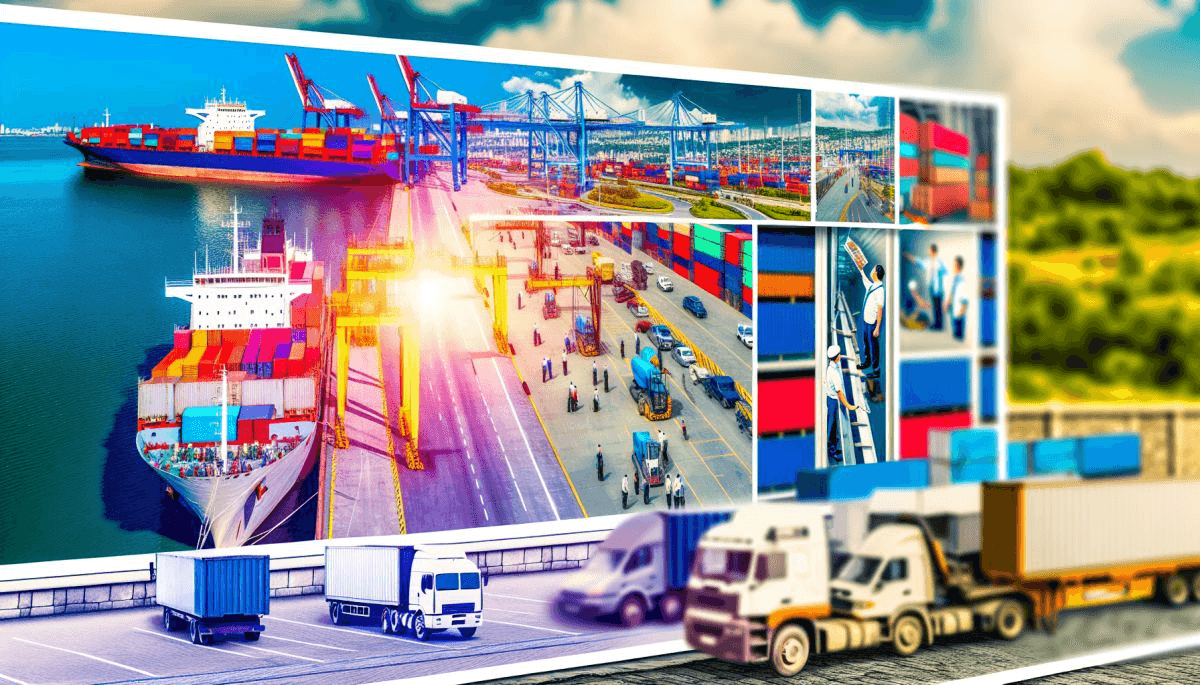Introduction
In the intricate web of Black Sea–Caspian maritime logistics, maritime transport plays a pivotal role in connecting diverse regions with unique logistical needs. Countries such as Georgia have emerged as significant players, leveraging their strategic geographic positions to bridge the gap between Europe and Central Asia. As we examine the current landscape, several pressing challenges confront the industry, making Georgia's contribution to maritime logistics particularly noteworthy.
Key Challenges in Black Sea–Caspian Maritime Logistics
Geopolitical Tensions
The Black Sea region is not immune to geopolitical tensions that can impact maritime trade routes. Political instability can result in abrupt changes to shipping lanes, influencing the movement of goods and increasing the complexity of logistics planning. Georgia, with its stable political climate and neutral stance, often serves as a detour to avoid politically sensitive seas, enhancing the reliability of maritime pathways.
Infrastructure Development
Despite numerous ports along the Black Sea, not all are equipped to handle large-scale cargo operations. The ports of Poti and Batumi stand out as vital maritime hubs. Investing in state-of-the-art infrastructure, these ports accommodate diverse shipping needs, including Ro-Ro transportation and container shipping. The enhanced capacity positions Georgia as an advantageous point for maritime logistics, crucial for heavy freight loads.
Environmental Concerns
Navigating the Black Sea—Caspian corridors presents unique environmental challenges. The proximity to ecologically sensitive areas necessitates sustainable shipping practices. Georgian ports are lauded for implementing eco-friendly logistics solutions, thus fostering a balance between operational efficiency and environmental stewardship.
Regulatory Compliance
Maritime logistics in this region involves adherence to varying international regulations. Navigating these complex rules requires expertise, something Georgia bolsters with legal frameworks that support international freight movement. Their strategic location and technical know-how further solidify their role as facilitators in global logistics.
Economic Factors
Fluctuations in global markets and economic policies can affect shipping costs and operational viability in the Black Sea gateway. By maintaining competitive tariffs and fostering economic partnerships, Georgia mitigates the adverse impacts of such economic shifts, thereby sustaining its maritime logistics appeal.
Georgia’s Strategic Logistics Solutions
Georgia's pivotal geographical and strategic position, particularly with the ports of Poti and Batumi, acts as a crucial linchpin in connecting Europe through countries like Romania and Bulgaria to Central Asia including Azerbaijan, Uzbekistan, Turkmenistan, and Kazakhstan. Leveraging these routes, Georgia excels in sectors like project logistics and Ro-Ro shipping, effectively becoming a conduit for uninterrupted freight movement across these critical regions.
Conclusion
The emerging logistics powerhouse, Georgia, continues to play a significant role in solving the maritime challenges in the Black Sea–Caspian corridor. Its strategic location, combined with infrastructural growth in ports like Batumi and Poti, make it a desirable passage for shipping companies engaged in marine logistics Turkey and global freight solutions. As the region evolves, Georgia's active investment in logistics technology and creative solutions stands testament to its commitment to this crucial industry.
For more insights into Georgia's strategic logistical position, explore Lider Shipping and their innovative solutions that continue to shape the future of the maritime industry.

